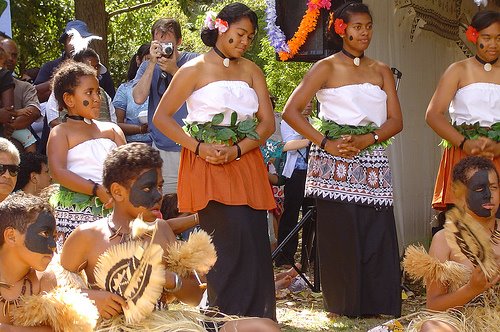 The island of Moturiki. in the Lomaiviti Group, boasts of many things and two of them just happen to be great rugby players in the likes of Filimoni Bolavucu and tall Semisi Serevi.
The island of Moturiki. in the Lomaiviti Group, boasts of many things and two of them just happen to be great rugby players in the likes of Filimoni Bolavucu and tall Semisi Serevi.Not only that, the island is known for its cultural significance and traditional methods of farming.
One such farmer who has proved his worth on the island is Jese Baledidrokadroka, 44, of Nasauvuki Village.
For Jese, farming has always been his passion and he would not dream of leaving his land for greener pastures as he believes he is already toiling on green gold.
He recalled that back in 1994, he was offered a chance to travel to the Unites States of America to pursue a degree in Christian principles but he declined as he had decided way before that, he was going to keep farming for a living.
"I made the ultimate sacrifice for me and my family and yes, I believe that this is God's calling for me so that I can farm and spread his word to my own village," he said.
"Through all the hardships that I faced when I began farming, I made sure that God was the head of my family and the source of my strength and that is why I am here today."
With so many acres of land to plant, Jese never wasted a minute as his principle in life is to use time wisely.
"I attended the Fiji Bible College in Buabua, Lautoka, and after settling down with my wife, I decided to move back into the village to farm for a living and to spread the gospel among my fellow villagers.
Thus his quest for food security began and the gruelling hours that he spent on his farm every day except for the Sabbath is a story on its own.
"Villagers here in Nasauvuki plant up in the hills and it takes sheer determination to climb those hills everyday. It is a 45-minutes walk from my home to work in the field.
"I have made it a point that I have my lunch up in the field and do not return until dusk as I have so much to do in and around the farm."
Jese plants a host of root crops, with yaqona being his main source of income.
"I make sure that I plant 60 yaqona plants and 20 dalo plants everyday. That has been inter-cropped with other root crops like cassava and vudi and a bit of green leafy vegetables.
"With the increase in demand for yaqona, I believe my farming commitment is going to achieve greater heights in the years to come," he said confidently.
Jese has an impressive dalo planting program but has decided not to sell it to the markets after several deals went wrong for him.
"I plant the tausala variety and sold it several times in Levuka but after the hiccups I had to go through, I decided against it and have been planting it for family use only," he said.
"But now we have been told of a market that has been secured for us by the extension officers of the ministry and this could be a great start to my dalo business once again."
The Ministry of Agriculture has decided that Jese's farm is to be a demonstration farm for other farmers on the island to learn from.
Senior agriculture officer Lomaiviti Aporosa Lalabalavu said the aim of the program was to keep Moturiki dalo pest free.
